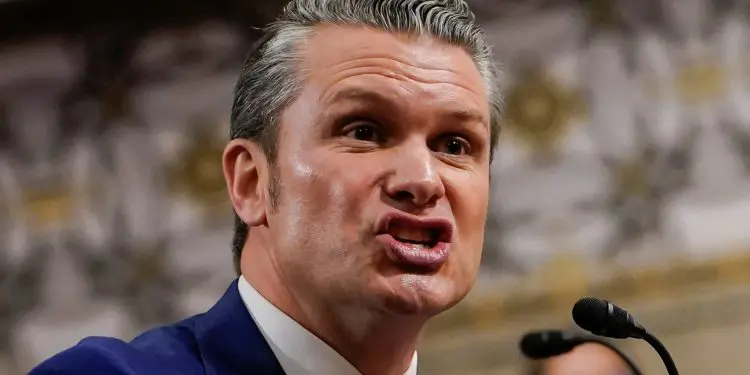In a marathon four-hour Senate confirmation hearing Tuesday, Pete Hegseth, Donald Trump’s controversial pick for defense secretary, faced a barrage of questions about his fitness to oversee the $849 billion Department of Defense. The hearing, rife with tension and partisanship, delved into issues ranging from Hegseth’s self-proclaimed “warrior culture” to allegations of sexual misconduct and workplace impropriety.
Here are the five key takeaways from a hearing that revealed as much about Hegseth’s character as it did about his vision for the Pentagon.
1. “Warfighting and Lethality” Above All Else
Hegseth wasted no time establishing his priorities for the Pentagon. His vision? A return to a “warrior culture” focused on military strength and efficiency.
“Warfighting, lethality, meritocracy, standards, and readiness—that’s it. That is my job,” he declared.
But his disdain for diversity initiatives was clear. Hegseth dismissed equity-focused policies as morale-draining and counterproductive, asserting that the military should abandon quotas that, in his words, “weaken the backbone of our armed forces.” His statements drew sharp criticism from Democrats, who viewed them as a direct attack on inclusion efforts.
2. Women in Combat: A Flashpoint of Contention
Hegseth’s past comments opposing women in combat roles ignited fiery exchanges with Democratic senators, particularly female lawmakers. Sen. Elizabeth Warren highlighted Hegseth’s history of controversial remarks, quoting a podcast where he stated flatly: “Women shouldn’t be in combat at all.”
While Hegseth attempted to clarify, claiming his concerns centered on maintaining military standards, the confrontation underscored a fundamental divide. Sen. Tammy Duckworth, a combat veteran, did not mince words: “The troops cannot be led by someone who does not respect their contributions—man or woman.”
3. Is Lack of Experience a Strength or Liability?
At 44, Hegseth would be one of the youngest defense secretaries in history, a fact Republicans framed as an asset. Sen. Eric Schmitt called Hegseth a “breath of fresh air” who would disrupt the “stale bureaucracy” of Washington.
But Democrats painted a different picture, pointing to his lack of senior leadership experience and a record of financial mismanagement during his tenure at veteran-focused nonprofits. Sen. Tammy Duckworth pressed him on whether he had ever conducted an audit, only to be met with evasive responses.
Hegseth’s background as a Fox News commentator also raised eyebrows, with critics questioning whether his media persona outweighed his military qualifications.
4. Avoidance of Strategic Issues
While the hearing focused heavily on Hegseth’s character and competence, critical defense issues like U.S. strategy on China, Ukraine, and global security threats were conspicuously absent. Mara Karlin, a former Pentagon official, called it “astonishing” that so little attention was paid to the core responsibilities of a defense secretary.
The omission left some questioning whether senators prioritized political theater over probing Hegseth’s ability to protect national security.
5. Sexual Assault Allegations Loom Large
The most contentious moments of the hearing revolved around a 2017 sexual assault allegation against Hegseth. According to police reports, a woman accused him of blocking her from leaving a hotel room before assaulting her. Hegseth denied the allegations but acknowledged a financial settlement.
He described the accusations as a “coordinated smear campaign” by left-wing media, presenting himself as a victim of political persecution. Yet, his responses veered into personal redemption narratives, invoking his Christian faith: “I am not a perfect person, but redemption is real.”
The Road Ahead
Hegseth’s nomination now hinges on a closely divided Senate. With Democrats united in opposition, he can afford to lose only three Republican votes. Outside the chamber, conservative advocacy groups are rallying behind him, framing his nomination as a battle in America’s ongoing culture war.
The stakes are high. Hegseth’s confirmation would place a polarizing figure at the helm of the Pentagon, responsible for navigating a world fraught with geopolitical challenges and domestic military reforms. For now, his fate rests with a Senate divided not just by politics, but by a broader clash over what leadership in the Defense Department should look like.







